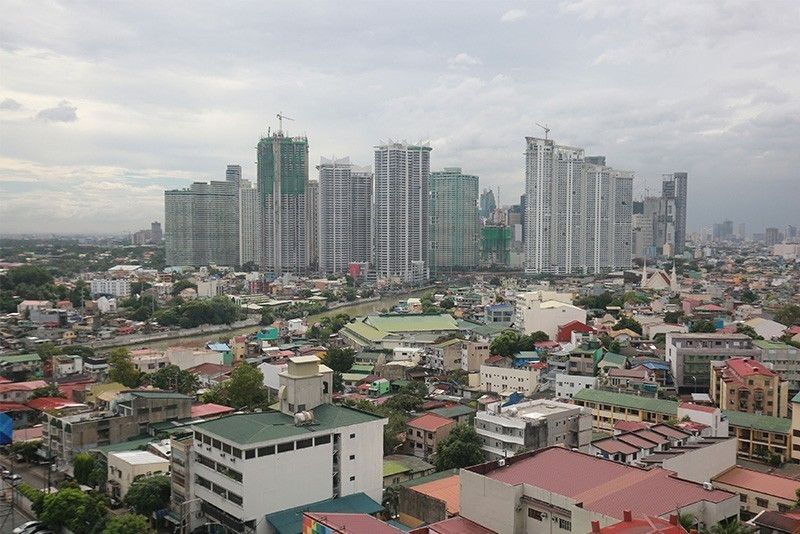Government urged to address slowed GDP growth, declining competitiveness

MANILA, Philippines — Days before President Rodrigo Duterte delivers his fourth State of the Nation Address, experts pointed out a number economic problems that they say the government needs to troubleshoot.
Chief among those, they said, are the continuing deceleration of economic growth, loss of jobs and inflation.
In a forum at the University of the Philippines Center for Integrative and Development Studies on Wednesday, economists sounded the alarm over the government's failure to reach its ambitious 7-8% gross domestic product growth target.
GDP refers to the total monetary or market value of all the finished goods and services produced in a country's border in a specific time.
"As you can see, in terms of the growth rate, there has been a deceleration since the beginning of the Duterte administration," said Emmanuel de Dios, a professor at the UP School of Economics.
GDP grew at 6.8% in 2016, 6.7% in 2017 and 6.2% in 2018.
"And that, 2019, Quarter 1... there was a big surprise because, for the first time, it was below 6%."
De Dios was referring to the GDP's deceleration to 5.6% early this 2019, which was the weakest quarterly pace since the first quarter of 2015. He said GDP growth would likely hit below 6.5% for the current year.
"So what is the meaning of this? It's that the growth target will not be achieved," he said.
Bangko Sentral ng Pilipinas Governor Benjamin Diokno said earlier this month that achieving an 8% GDP growth is still doable.
In a GMA News interview, howevever, Socio-Economic Planning Secretary Ernesto Pernia was quoted as saying an average GDP growth rate of 8% for the Duterte administration is not achievable.
De Dios noted however that 6% is still a "decent growth rate" globally.
In their pre-SONA forum, the Department of Finance credited the Duterte administration for rapid economic expansion, the "lowest unemployment in 40 years" and tax reform, which they said benefited 99% of taxpayers.
'Declining competitiveness'
While the Department of Finance lauded the Duterte administration for rapid economic expansion and the "lowest unemployment in 40 years", De Dios warned of a rapid decline in competitiveness in the economy.
"[I]t's not just a Duterte problem. It has been going on for some time that the economy has become less and less competitive, and less and less export-oriented," he said.
According to the Department of Trade and Industry, Agriculture, Hunting, Forestry and Fishing's share in the GDP fared only at 8.94% of GDP in 2018.
"[I]t's down less than 10% of GDP. And yet... it still employs about 20% of the labor force," he said.
Industry's share in the GDP likewise only increased minimally he said, from 34.01% to 34.84% last year.
"We are supposed to be [undergoing a] manufacturing rennaissance, ganoon. But it's actually stagnated."
The case of inflation
Headline inflation reached a nine-year high in September and October 2018, reaching 6.7%.
It however eased to its slowest pace in two years at 2.7%, which De Dios attributed to an increase in rice importation even before the implementation of the rice tariffication law. Food inflation in 2018 reached 6.9%.
Said economic measures, he said, seem to point towards Duterte's middle class economic agenda: "Another example is rice tariffication. It helps the middle class. It lowers prices and we saw that... On the other hand, it has an impact on agriculture. It does not help a lot of small farmers."
"So, in that kind of situation, when you legislate for the middle class, there's certainly a stratum of society that would be left behind—Yung mga Lumad ninyo. Maiiwan 'yan. (The Lumads will be left behind)—That's a hard core of about what, 20% of the population."
Research group IBON Foundation last July 6 reported that prices of basic commodities are still higher compared to prices at the start of the Duterte administration.
IBON executive director Sonny Africa said that the lower inflation was "not being felt by the public."
"[F]ood is still generally more expensive than in the same time last year," Africa said
In 2018, the World Bank said that employment in the Philippines increased between 2006 and 2015 increased, while "mean wages remained stagnant."
"So that inflation, even though it has gone down, it has already been built in. And unless you adjust wages, it still not going to happen," cited De Dios. — with reports from BusinessWorld
- Latest
- Trending




























